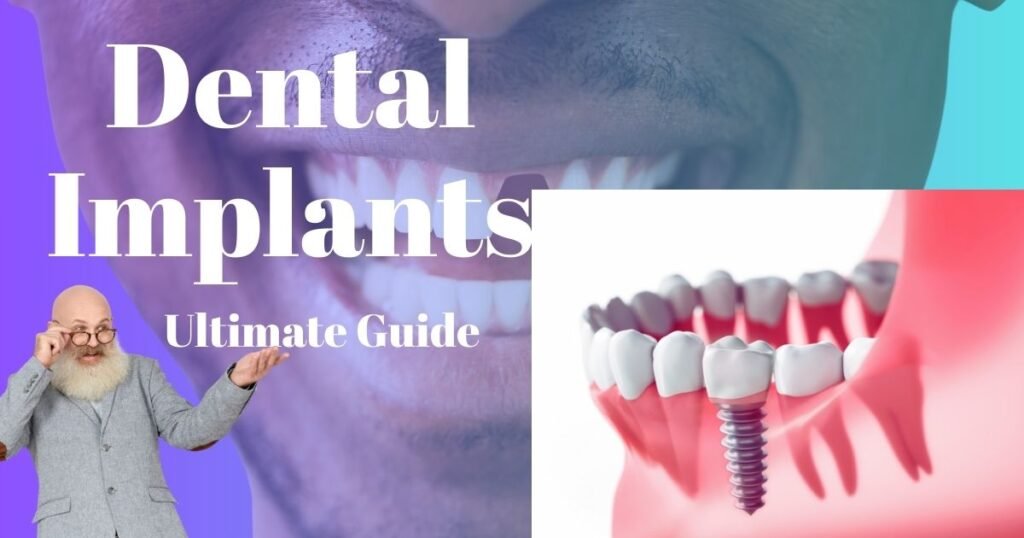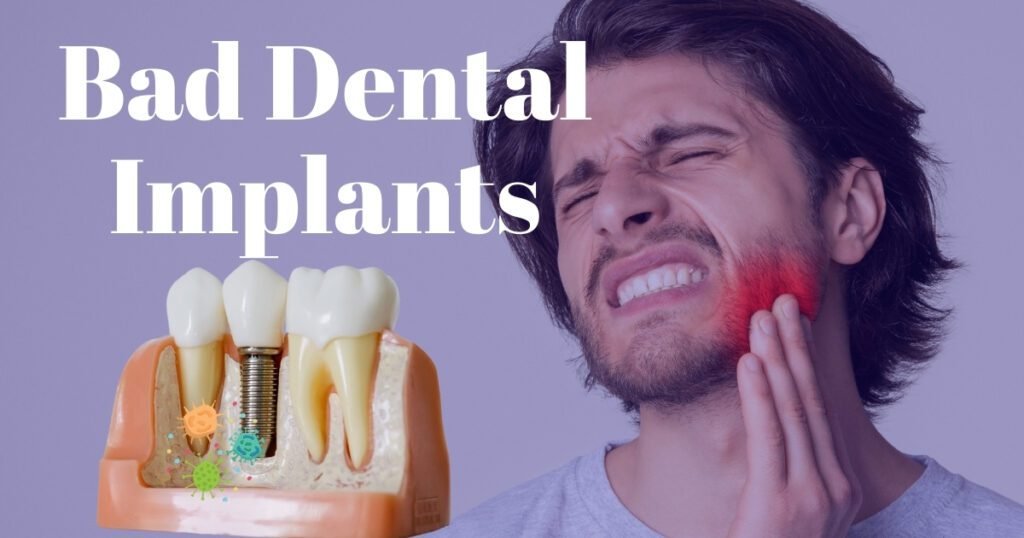Replacing missing teeth with dental implants has become a successful and widely available treatment, but the high cost can be a major restriction for some patients. Although dental insurance usually pays for some aspect of the implant process, medical insurance does so in certain instances as well. Knowing these situations and being able to navigate the insurance world will help you maximize benefits and minimize what you pay out of pocket.
Understanding the Difference Between Dental and Medical Insurance
Dental coverage is meant to protect people in the case of routine dental care—things like cleanings, fillings, and other basic procedures. But it falls short in big restorative jobs like dental implants. Medical insurance, however, is more focused on aspects related to health, and dental coverage may be included if deemed necessary for medical purposes.
When Medical Insurance Might Cover the Cost of Dental Implants
Dental implants can be covered in the following cases by medical insurance:
- Accident or Trauma: If you have lost teeth because of an accident or trauma, your medical insurance could offset the cost of dental implants as part of a reconstructive surgery.
- Health problems: There are some health problems that make dental implants a necessity — oral cancer and some birth defects may require dental implants. If there are other medical reasons for the penile implant, insurance might regard the procedure as necessary for general health, and cover it.
- Surgical Procedures: If the dental implant surgery is a result of a hospitalization or related to a non-oral issue, medical insurance may cover the treatment.
Process to Get Medical Insurance To Pay For Dental Implants
There are some ways to improve the chances of acquiring medical insurance for dental implants.
- Consult with Your Physicians: By sharing your dental and medical history with your dentist and PCP. They can assist in deciding if your case of needing implants fits the definition of medically necessary.
- Secure Complete Records: Get hold of all medical documentation, such as X-rays, doctor notes and evidence that connects your dental problems to medical conditions or incidents.
- Pre-Authorization: Before undergoing the procedure, submit a pre-authorization request to your medical insurance provider. This process involves providing detailed information about the necessity of the implants and can prevent unexpected denials.
- Appeal Denied Claims: If your first claim is rejected, don’t give up. Read the denial letter closely, write down the reasons stated, and reapply with more evidence.
- Explore Supplemental Insurance: Look into supplemental insurance plans, which provide broader coverage for dental procedures. This does cost extra in premiums, but can be a great financial benefit for major things.
Navigating Insurance Challenges
It’s important to recognize that insurance companies is going to investigate any dental implant claims, especially claiming through med insurance. A few of the common challenges are:
- Strict Definitions of Medical Necessity: Some insurers have rigid guidelines for what is considered medically necessary. Make sure your documentation fits these definitions.
- Policy Exclusions: Carefully go through your insurance policy to see if it contains any exclusions for dental treatment. Knowing these can provide you with a better argument for coverage.
- Coordination Between Insurers: If you have both dental and medical insurance, find out what each one covers and coordinate between the two as to what part of the treatment each one will pick up.
Conclusion
Getting medical insurance to cover dental implants takes persistence, preparation, and a willingness to make a case to your insurance provider. If you can show them this type of treatment is medically necessary and learn the specifics of your policy, you can increase the odds that you will be covered and have a healthier mouth and better smile without the total cost coming out of your wallet.
15 FAQs on How to Get Dental Implants Covered by Medical Insurance
Do dental implants fall under medical insurance?
Could your medical insurance cover dental implants? Yes, it can if the dental implants are considered medically necessary because of an accident, an injury, a disease, or a congenital anomaly. But there’s one catch: standard dental implant surgery is not typically covered by medical insurance.
When are dental implants considered medically necessary?
Dental implants are medically necessary when used to replace teeth lost due to trauma (accidents), medical conditions (like oral cancer or osteoporosis), congenital defects, or negligent failure of existing dental restorations.
Are dental implants covered by Medicare?
While Original Medicare (Part A and Part B) won’t cover the cost of dental implants, Medicare Advantage (Part C) plans could potentially cover the initial procedure if it is deemed medically necessary. You will have to check with your particular plan provider.
How do I show that my dental implants are a medically necessary procedure?
You will need detailed documentation from your dentist and physician, including X-rays, medical history, accident reports, and written statements regarding why implants are necessary for your health.
Will getting bone grafting for dental implants be covered by my insurance?
Bone grafting could be a covered benefit if the procedure is medically necessary as a result of loss of bone due to injury, disease, or congenital anomaly. But if it is only for implant placement, it might not be covered.
What is pre-authorization for dental implants?
Pre-authorization is approval from your insurance company for the procedure before you have the procedure. It allows you to know in advance what part of your treatment will be covered and avoid unexpected denials.”
Can I appeal if my request for coverage for dental implants is denied?
Yes. If your claim is denied, you can appeal that decision with more medical records, letters from physicians, and any other evidence that demonstrates that the procedure is medically necessary.
How much does medical insurance pay for dental implants?
The amount of coverage depends on the plan. Surgical costs and hospital stays, and anesthesia may be covered by some policies, while they may not be by others. You might still be responsible for some out-of-pocket costs.
Is private health insurance going to cover dental implants?
Some private health insurance programs cover a portion of implant treatment if the procedure is medically necessary. But many policies exclude implants unless they are related to a covered medical condition.
Can I make them pay for dental implants after a work injury?
Yes. If you lost your teeth in a workplace accident, dental implants may be paid for by workers’ compensation or employer-provided medical insurance.
Are dental implants covered by Medicaid?
Medicaid dental implants coverage also depends on the state. Medical guideline implants. Some states allow coverage for implants if they are deemed medically necessary. For details, see the Medicaid office in your state.
Can I double up my dental and medical insurance for implants?
Yes, both may be used. The surgical procedure may be covered under your medical insurance, with the prosthodontic phase (the implant crown) covered under your dental insurance.
Where can I find a dental insurance plan with dental implants coverage?
Search for full dental coverage or medical policies with an oral surgery benefit. Some insurers provide auxiliary dental plans that include coverage for implants.
What are some other ways to finance the implants if they aren’t covered by my insurance?
Yes. You may want to research dental discount plans, any financing that your dentist offers, health savings accounts (HSA), flexible spending accounts (FSA), or medical credit options such as CareCredit to help defray the cost.

Dr. Niraj Ghanghoriya is a passionate dental surgeon with over 12 years of experience in clinical dentistry. He completed his BDS from the prestigious Sri Aurobindo Institute of Dentistry in 2012 and specializes in painless root canals, smile makeovers, and preventive oral care. He is the Founder of ToothCareUSA.com and a registered Dental Surgeon (Reg No: A-03649) based in Indore. Known for his patient-first approach and clear communication, Dr. Ghanghoriya aims to make dental knowledge accessible to everyone. When he’s not in the clinic, he enjoys writing informative dental blogs to help people take better care of their oral health. He reviews every article on this site to ensure medical accuracy and patient safety.




